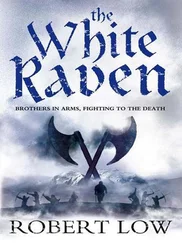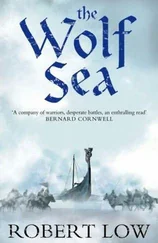Robert Low - The Lion Wakes
Здесь есть возможность читать онлайн «Robert Low - The Lion Wakes» — ознакомительный отрывок электронной книги совершенно бесплатно, а после прочтения отрывка купить полную версию. В некоторых случаях можно слушать аудио, скачать через торрент в формате fb2 и присутствует краткое содержание. Жанр: Исторические приключения, на английском языке. Описание произведения, (предисловие) а так же отзывы посетителей доступны на портале библиотеки ЛибКат.
- Название:The Lion Wakes
- Автор:
- Жанр:
- Год:неизвестен
- ISBN:нет данных
- Рейтинг книги:4 / 5. Голосов: 1
-
Избранное:Добавить в избранное
- Отзывы:
-
Ваша оценка:
- 80
- 1
- 2
- 3
- 4
- 5
The Lion Wakes: краткое содержание, описание и аннотация
Предлагаем к чтению аннотацию, описание, краткое содержание или предисловие (зависит от того, что написал сам автор книги «The Lion Wakes»). Если вы не нашли необходимую информацию о книге — напишите в комментариях, мы постараемся отыскать её.
The Lion Wakes — читать онлайн ознакомительный отрывок
Ниже представлен текст книги, разбитый по страницам. Система сохранения места последней прочитанной страницы, позволяет с удобством читать онлайн бесплатно книгу «The Lion Wakes», без необходимости каждый раз заново искать на чём Вы остановились. Поставьте закладку, и сможете в любой момент перейти на страницу, на которой закончили чтение.
Интервал:
Закладка:
The riders circled, frustrated and hurling curses, maces, axes, the remains of their lances and – now that the Selkirk bowmen had been scatteered and ridden down – their huge barrel helmets. The spearmen thrust and slashed, panting and snarling, and the great horses died, spilling the proud blazon of their riders into the crushed grass and bloody mud, where men in dirty wool came from the back ranks of the ring of spears, squirming between legs and feet to scuttle out and pounce on the trapped, or those too slow to struggle away on foot.
‘No’ chantin’ noo, ye sou’s arse,’ howled one, leaping like a spider on a black and silver figure, crawling wearily on hands and knees away from the kicking shriek of his dying horse. The thin-bladed knife went in the visor and blood flooded out the breathing holes – then the spider was back beneath the shelter of the spears, breathing hard and smiling at Hal like a fox fresh on a kill.
He wiped the dagger on his filthy, ripped braies and Hal saw it was Fergus the Beetle, black-carapaced in his boiled leather and grinning with blood on his teeth. He winked, as if he had just spotted Hal across a crowded alehouse.
‘Aye til the fore, my lord.’
Hal blinked. Still alive. Beyond the safety of the spear rings, the Scots archers were being ridden down and killed in a running slaughter and he wondered what had happened to Sim.
The Bishop’s horse limped and his surcoat was torn open under one arm, so that it flapped like the wounded wing of a red kite. Behind him stumbled a knight on foot, helmet and bascinet both gone and his maille coif shredded; there was blood on his face and a great spill of it down a once-cream surcoat, almost obliterating the two ravens blazoned on it.
Addaf did not need to hear Bek to know his anger, for it was plain in the wild, red-faced hand-waving he did at the knight in red and gold stripes, who sat sullenly on his expensive warhorse. It was draped in pristine white barding scattered with little red-and-gold-striped shields, each one ermined in the top left quarter; Basset of Drayton, Addaf had been told after the first angry encounter between the knight and the Bishop.
That was when Bek had tried to check the knights of his command and wait for the king before attacking, but this Basset of Drayton had arrogantly pointed his sword at Bek and told him to go and celebrate Mass if he wished, for the knights would do the fighting. Bek’s retinue heard it and took off in a mad gallop, a great metal flail that splintered itself to ruin on the nearest Scots ring of spears while the Bishop beat his saddle with futile anger.
Now the survivors of it, their horses dead, staggered away – and Addaf knew that Bek was scathing Basset because neither he nor any of his two bachelor knights nor nine sergeants had ridden anywhere near the Scots.
‘This horse is worth fifty marks,’ Basset argued, scowling as Addaf and the other archers came level with the arguing pair.
‘Then point it and spur – it should charge home,’ Bek snarled back, ‘even if the rider does not care to.’
‘By Christ’s Wounds,’ Basset bellowed, his beard bristling. ‘I will not take that from the likes of a tonsured byblow…’
‘Neither will you charge home,’ bellowed a new voice and everyone turned as Edward and his retinue came cantering up. Eyes went down; no-one wanted to look at the furious, droop-lidded lisping rage that stormed out of the king’s face.
Especially not Basset, who went as white as his horse barding and started to stammer.
‘Quiet,’ Edward ordered, then surveyed the wreckage of staggering, unhorsed knights, trailing back like drunks from an alehouse. A groaning knight in green, torn and spattered with mud and blood, was helped by two others; his left hand was hanging from a bloody mess by a few last fragments of tendon and flesh and someone had tied his baldric round the forearm to stop him bleeding to death.
‘My Lord of Otley,’ Edward said, nodding to the green knight as if they had met in cloistered court. The green knight moaned and another limped out behind him, bare-headed and leaking blood; he paused, looked up at his king and bowed.
Edward returned it.
‘My good lord,’ he said blandly. ‘You have lost your horse.’
Voiced as commiseration, it had a vicious twist to it – Eustace de Hacche had refused to sell his splendid charger to the king and now the beautiful bay with one white sock was lying, screaming in a tureen of its own entrails.
De Hacche turned away, nursing his ribs and more bitter about the horse than the spear which had burst him open; he did not want to have to remove his maille and gambeson for fear of what might tumble to the ground. I will look like my horse, he thought.
Esward watched him stumble off, his face a dog’s dinner of anger, then turned his droop-eyed fury on Bek and Basset.
‘Neither of ye have the sense of an egg,’ he growled and watched them bristle, mildly curious to see if they would spill it over to argument. They winked on the brim of it – then puffed it away and Edward sat deeper in his saddle, slightly disappointed but not surprised.
Christ blind me, he thought, good men have died because this Basset fool has a head fit only for carrying a metal helmet and as empty. Not that he is alone in it, he added bitterly, else I would not have to be here, completing the task I set for the Earl of Surrey and others.
‘If you have finished squandering the chivalry of England,’ Edward growled at the pair, ‘perhaps we can return to completing this affray?’
He gave a signal; a horn blew and Addaf heard the Lord of Bedale shouting at Heydin Captain, who, in turn, roared out orders in his sonorous Welsh for the war-winners to step on this bloody stage.
Addaf rolled his shoulders expectantly, then looked right and left, dismayed. Around him, the Welsh archers, watching the expensively hired Gascon crossbowmen trot forward and start rattling shafts, twisted smiles of braided scorn on their faces. The Welsh spearman butted their weapons and leaned on them insolently.
Addaf’s heart sank – the sullen hatred for the English was more to the Welsh than honour and, though they would not change sides, they did not want to participate further, a defiant response to the slaughter perpetrated on them earlier.
The archers stood, stolid faces blank, one horned nock of their unstrung bows on the instep of a shoed foot to keep it out of the mud, the other clamped between two fists as they leaned gently, pointedly going nowhere.
Like all the other millinars, Bedale yelled and galloped back and forth, but it was Heydin Captain and all the other captains of a hundred who persuaded the reluctant Welsh of his command into the business, with a combination of scathing curses on their bravery and wheedling promises of being first at the plunder.
That lashed them to action and they moved forward, knowing that each step took them closer to the part that mattered – the plundering of the bodies when the field was won. Yet Addaf was aware of the low mumured growl of all the other Welsh, conscious of the burn of their eyes on his back.
It was not Bedale or even Heydin Captain – for all their shouting and waving – who did the serious work for Addaf and his fellows: that task belonged to Rhys, the Master. Mydr ap Mydfydd, they called him – Aim the Aimer – and with good reason.
He brought them to within a hundred paces, while the remaining knights circled aimlessly round the thicket of spears, waving weapons and trying to dart in now and then and stab with their lances – though most of them had thrown them down. They saw the Welsh archers come up and frantically spurred or staggered away from the schiltrons as if the men in them had plague; they did not want to be anywhere near the arrow storm when it fell, for they knew the Welsh would take as great a delight in killing English horse as the enemy.
Читать дальшеИнтервал:
Закладка:
Похожие книги на «The Lion Wakes»
Представляем Вашему вниманию похожие книги на «The Lion Wakes» списком для выбора. Мы отобрали схожую по названию и смыслу литературу в надежде предоставить читателям больше вариантов отыскать новые, интересные, ещё непрочитанные произведения.
Обсуждение, отзывы о книге «The Lion Wakes» и просто собственные мнения читателей. Оставьте ваши комментарии, напишите, что Вы думаете о произведении, его смысле или главных героях. Укажите что конкретно понравилось, а что нет, и почему Вы так считаете.











